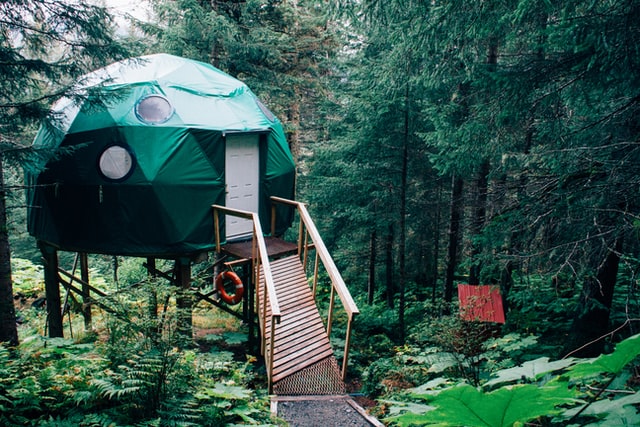As people start to plan getaways after the travel restrictions in the first part of 2020, they might be looking for something a bit different from the usual hotel stay booked with all those points or miles they might have earned via business travel or smart moves with credit card incentive offers. But what are the non-hotel options, and what’s changed since early this year?
First to Market: VRBO
Many may not know this, but VRBO has actually been around since the mid-1990s. They’ve focused on owner-owned properties that are not shared with guests, and tend to feature getaways in the countryside rather than places in a city. They also acquired Homeaway in recent years so they represent, in many ways, the “alternative to Airbnb” despite the fact that they came to market first. VRBO also always charges a refundable security deposit, whereas Airbnb will only charge that if there is a claim made by the host.
New Kid: Airbnb
If a competitor with a 13 year head start is supposed to scare you, Airbnb didn’t show any fear. They quickly became a noun, like “xerox” and “kleenex” before it: you would now “get an airbnb” with some friends for the weekend. It has five times the traffic of VRBO and more than double the worldwide listings, in part because they do allow for shared rental spaces, i.e. someone renting you a spare room in their home. VRBO strictly forbids this.
Airbnb tends to dominate in cities and offers some fun and unique possibilities, like treehouses, private islands, and yeah, even yellow submarines for rent. Part of why people enjoy renting in cities is to “live like a local” right in a particular neighborhood.
Airbnb also recently added a new division, Airbnb Experiences, which feature locals giving unique adventures in the cities you travel to. Think walking tours, stand up comedy, or even foraging for local food.
Similarities
Both of these industry giants share a lot of similarities and just a few fairly minor differences other than what’s been already mentioned. They both do all their bookings online and have fairly usable apps to complement their website interfaces. They feature cleaning fees and service fees above and beyond whatever the nightly cost is, and they both block any direct emails/phone calls with hosts until a reservation has been booked and confirmed.
Both Airbnb and VRBO feature the advantages of booking a place that may offer kitchens, laundry rooms, or both, driving down costs and the need to pack a lot. Additionally, you give everyone the chance to taste those secret recipes you break out for special occasions.
Changes
Well, to begin with, prices are way down for all places to stay, hotel and otherwise. Between fewer people traveling and more inventory available to choose from, it’s never been less expensive to book on either VRBO or Airbnb.
Both platforms also have created various additional levels of cleanliness/sterilization that hosts can choose to follow and add to their listing to give those who are concerned about such things a bit more peace of mind.
It may seem like a strange time to travel, but there are still plenty of people doing it, and it’s a unique opportunity to experience a less-crowded version of a trip you’ve wanted to take for some time. The small businesses you support while on these trips will be grateful too!
Do you have a preference between Airbnb and VRBO? Share your thoughts in the comments.



